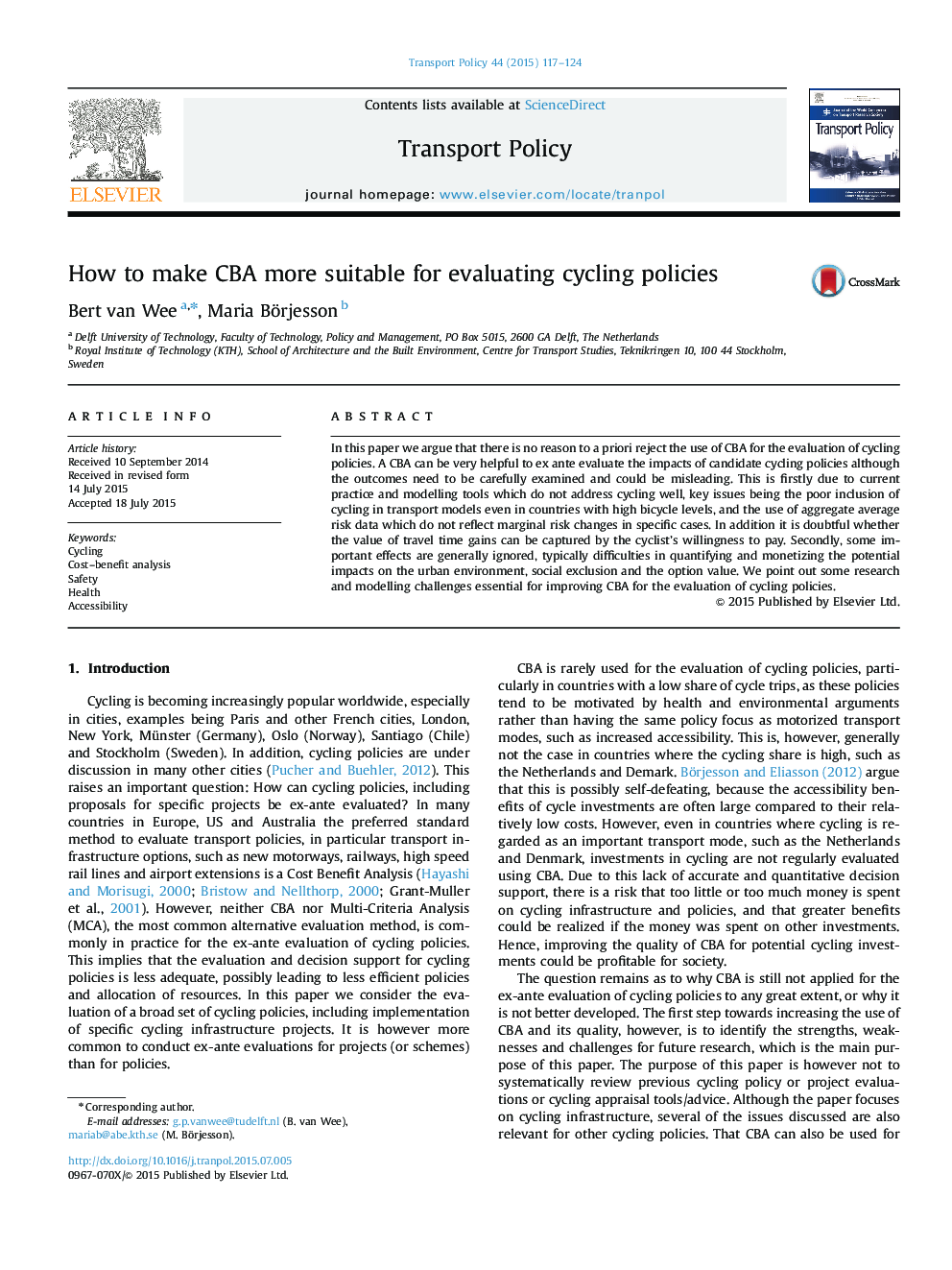| Article ID | Journal | Published Year | Pages | File Type |
|---|---|---|---|---|
| 7497628 | Transport Policy | 2015 | 8 Pages |
Abstract
In this paper we argue that there is no reason to a priori reject the use of CBA for the evaluation of cycling policies. A CBA can be very helpful to ex ante evaluate the impacts of candidate cycling policies although the outcomes need to be carefully examined and could be misleading. This is firstly due to current practice and modelling tools which do not address cycling well, key issues being the poor inclusion of cycling in transport models even in countries with high bicycle levels, and the use of aggregate average risk data which do not reflect marginal risk changes in specific cases. In addition it is doubtful whether the value of travel time gains can be captured by the cyclist's willingness to pay. Secondly, some important effects are generally ignored, typically difficulties in quantifying and monetizing the potential impacts on the urban environment, social exclusion and the option value. We point out some research and modelling challenges essential for improving CBA for the evaluation of cycling policies.
Related Topics
Social Sciences and Humanities
Social Sciences
Geography, Planning and Development
Authors
Bert van Wee, Maria Börjesson,
